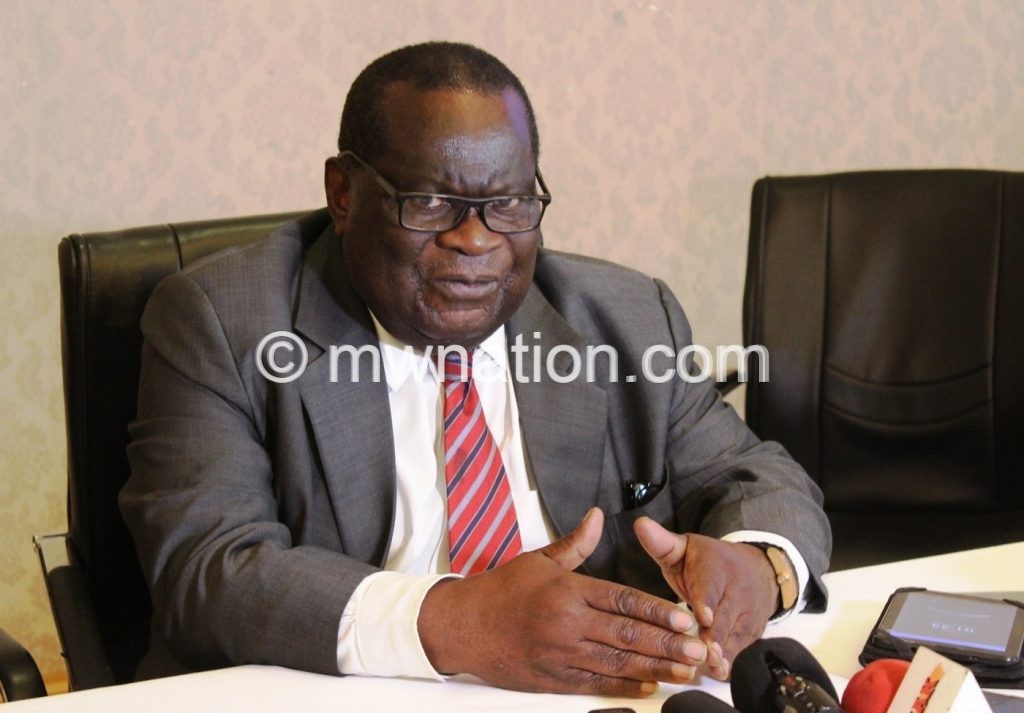A joint sector review meeting on the job creation strategy in Lilongwe on Thursday resolved that both government and the public sector should play an active role in operationalising the national blueprint on job creation.
This came after Minister of Finance and Economic Affairs Sosten Gwengwe spelt out the challenges affecting job creation and the strategies government has put in place to overcome them. In his address, the minister said local firms are failing to create adequate jobs because they are usually suppressed and given inadequate opportunities over foreign-owned firms.
Kamtukule: Local firms can create jobs
Said Gwengwe: “The foreign firms enjoy a lion’s share of government contracts but prioritise expatriates at the expense of Malawians who are supposed to occupy those jobs.
“The worst thing is that these expatriates do not even transfer skills to locals. In view of this, government through Public Procurement and Disposal of Assets [PPDA] and ministries departments and agencies [MDAs], is working on how best it can fully enforce the 60/40 clause of the PPDA Act to ensure that 60 percent of contracts should be awarded to qualifying black indigenous owned businesses, with more emphasis on encouraging them to work in partnerships.”
He said government has also gazetted the micro, small and medium enterprises (MSMEs) order to empower enterprises to supply goods and services to the government and its agencies to ensure fair distribution of growth of the country.
“The order helps in providing a 20 percent marginal preference to MSMEs when bidding for public procurements and contracts. Through the implementation of this order, a lot of local enterprises have been getting MSME certificates to participate in the public procurements,” said the minister.
Anothers challenge, he said, is that Malawian industries face s t i ff competition to grow and expand the production of goods as there is increased competition from cheap imported products.
“We are therefore going to give SMEs and large companies that have the potential to produce goods and services, which can substitute imports and create more jobs priority to access loans from public financial institutions,” he added.
On her part, Minister of Labour Vera Kamtukule said local firms have the capacity to create enough jobs for Malawians if they have a fertile ground for growing their enterprises to require extra labour force.
“From our records, there are over 1.2 million small scale enterprises in the country which just need incentives to create jobs for Malawians. If this happened and each enterprise created one job, we would have over 1.2 million jobs created,” she said.
Kamtukule, however, said the major challenge within the labour market is lack of clear data on the number of jobs created or lost for government to take proper action.
World Bank country manager Hugh Riddell said the bank will continue supporting Malawi on job creation through agricultural commercialisation. He called on the Malawi Government to accord the private sector a conducive environment to flourish and create jobs for Malawians.
Renowned businessperson Napoleon Dzombe also highlighted the need for government’s welcoming hands to the private sector so that instead of shrinking, the sector should expand and create demand for employment.
He said the challenges outlined by the Finance Minister were genuine, but with concerted efforts and shared roles between government and the private sector, they can be overcome.
During the 2022 Economist Impact Summit on Wednesday in Lilongwe, President Lazarus Chakwera admitted that his administration has failed to achieve its goals on job creation due to natural disasters and the impact of the Covid-19 pandemic. He said government is actively engaged in intense negotiations with local, regional, and international financial institutions to create facilities that will help Malawi surmount this obstacle.
The post Govt, industry captains discuss job creation flaws appeared first on The Nation Online.
 Moni Malawi
Moni Malawi 

